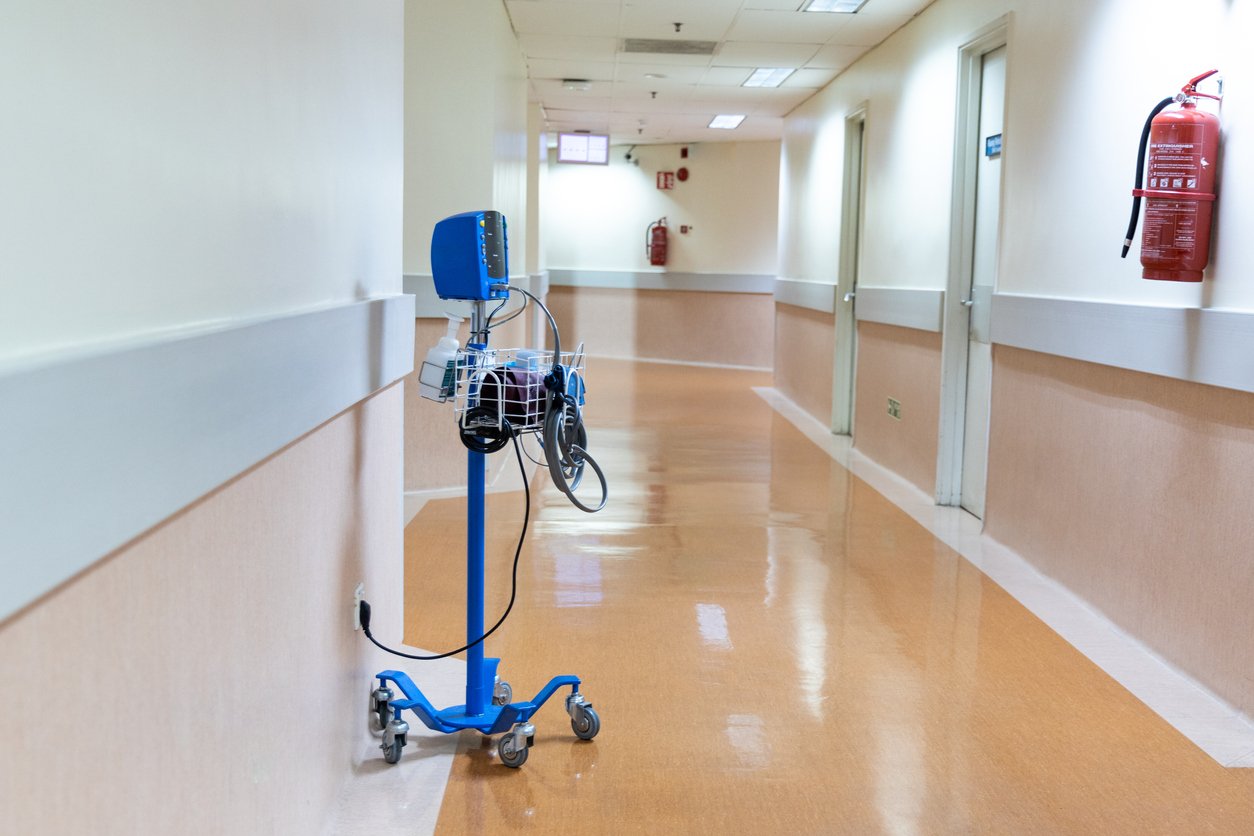It’s hard to believe that workstations on wheels (WOWs) weren’t in active use in healthcare settings ten years ago. The digitization of medical records, coupled with better wireless capabilities has been a real game changer for health care and WOWs have been a notable part of that change.
While around longer, the same is true of wall arms as their roles have increased to include a way to incorporate various devices within the patient room and around the facility.
Technology is invigorating healthcare with a new efficiency and increasingly new possibilities of how to deliver it. As the uses evolve, how these devices are transported or positioned is evolving too.
Facilities have a two-edged responsibility when it comes to that mandate. Supplying the carts and arms needed as these devices find more uses within the facility and maintaining the good working operation of the workstations and arms they currently have.
As the fleet of workstations and arms ages, it is important to have a reliable, compliant way to keep these items working properly. As a nationwide healthcare resource for all things equipment oriented, CME recently had an experience with one of New England’s best and largest hospitals that illustrates how an effective partnership with your equipment supplier can work.
The hospital was finding it increasingly frustrating to work with the manufacturer recommended service technicians for the wall arms and WOWs. Complaints of them not following OEM guidelines, lack of transparency of the price mark-up on those parts and fluctuations in pricing added great expense to equipment upkeep and they also had issues with the company they were using being slow to respond to service requests. Because the fleet of equipment was aging, the ticket team that followed up on a growing list of equipment issues, was finding it taking time away from other functions.
“We represent ourselves as an advocate for our customers,” said Jon Doda, National Services Director for CME. “We champion projects that will resolve our customer’s needs. For this customer, we hired FTE technicians that are employees of CME, but have badges and security access for the hospital.”
CME also discovered that the facility did not have a list of the devices within the hospital campus or where they were located.
“We put control numbers on every single arm and WOW and created a database. This allowed us to streamline processes, apply accurate documentation to each device for a service history, and let the technician know where the device in need of attention was located.”
Keeping better tracking has also allowed CME to aid the hospital in keeping existing equipment better maintained and they know when a product has hit its life expectancy and needs to be replaced.
Doda went on to explain the reality of what today’s healthcare systems must contend with. “Part of the issue with these pieces of equipment is that the biomed department is responsible for them, but they were bought by the IT department and usually IT purchases don’t have a maintenance component. With these types of products you must go to the floor and into the patient’s room and work alongside staff. At the same time, the biomed team’s budget has been reduced and they are not in a position to maintain these products, which most of them weren’t trained on to begin with.”

Aside from being able to effectively handle the hospital’s needs when it came to equipment oversight and onsite maintenance needs, CME was also able to better ensure that equipment downtime was minimized by devoting warehouse space near the hospital.
“We have warehouse space that they use to supplement their technicians with parts to be able to fix their equipment,” said Doda. “We bought parts and extra arms and keep stock on hand to avoid wait times. Additionally, they can buy new equipment in bulk, and store it with us while they roll it out in waves.”
With dozens of warehouses around the country, CME can meet the needs of both large and small facilities and allow them to take management of equipment off their plate. “We were able to take charge of this equipment and manage it for them,” said Doda. “This was a really big issue for them; one they had to deal with on an almost daily basis and now, it’s not a consideration. We have also heard that team morale could not be better.”
For more information about how CME can help you, contact us at (800) 338-2372 or visit our website.
About CME: CME Corp is the nation’s premier source for healthcare equipment, turnkey logistics, and biomedical services, representing 2 million+ products from more than 2,000 manufacturers.
With two corporate offices and 35+ service centers, our mission is to help healthcare facilities nationwide reduce the cost of the equipment they purchase, make their equipment specification, delivery, installation, and maintenance processes more efficient, and help them seamlessly launch, renovate and expand on schedule.


.png?height=100&name=Cindy%20Headshot%20(2).png)
